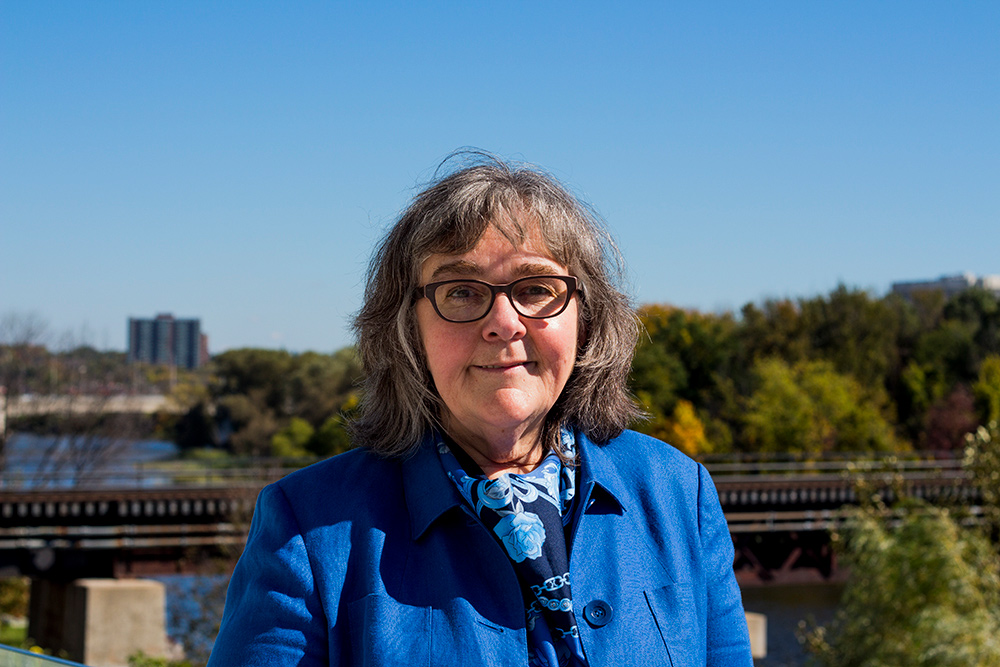By Laura Byrne Paquet
In 17 ambiguous words, Section 35.1 of the Constitution Act, 1982 set Canada on a new path that is still unfolding.
The section reads: “The existing Aboriginal and treaty rights of the Aboriginal peoples of Canada are hereby recognized and affirmed.”
“We possess that inherent right to self-government; we possess that right because it was bestowed upon us by our Creator, by natural laws [and] we’ve never voluntarily given up that right,” says Edmund Bellegarde, Tribal Chief and CEO at File Hills Qu’Appelle Tribal Council Inc. in Fort Qu’Appelle, Sask.

Chancellor’s Professor of Public Policy and Administration Frances Abele
Bellegarde is among many Indigenous chiefs, academics, practitioners and community members working with Carleton University’s Frances Abele on the Rebuilding First Nations Governance (RFNG) project addressing wide-ranging questions about what self-government looks like and the constraints of the Indian Act.
The grassroots initiative is supported by a $2.5-million grant from the Social Sciences and Humanities Research Council (SSHRC) and is affiliated with the Carleton Centre for Community Innovation (3ci). Over the next six years, the project will work with Indigenous communities to research issues they have selected as important to achieving their self-governance goals.
The roots of the RFNG project go back many years. One inspiration was a court case, Delgamuukw v British Columbia, in which the Supreme Court of Canada provided a legal definition of Aboriginal title and of the way it can be proven—definitions that have played a role in subsequent court cases.